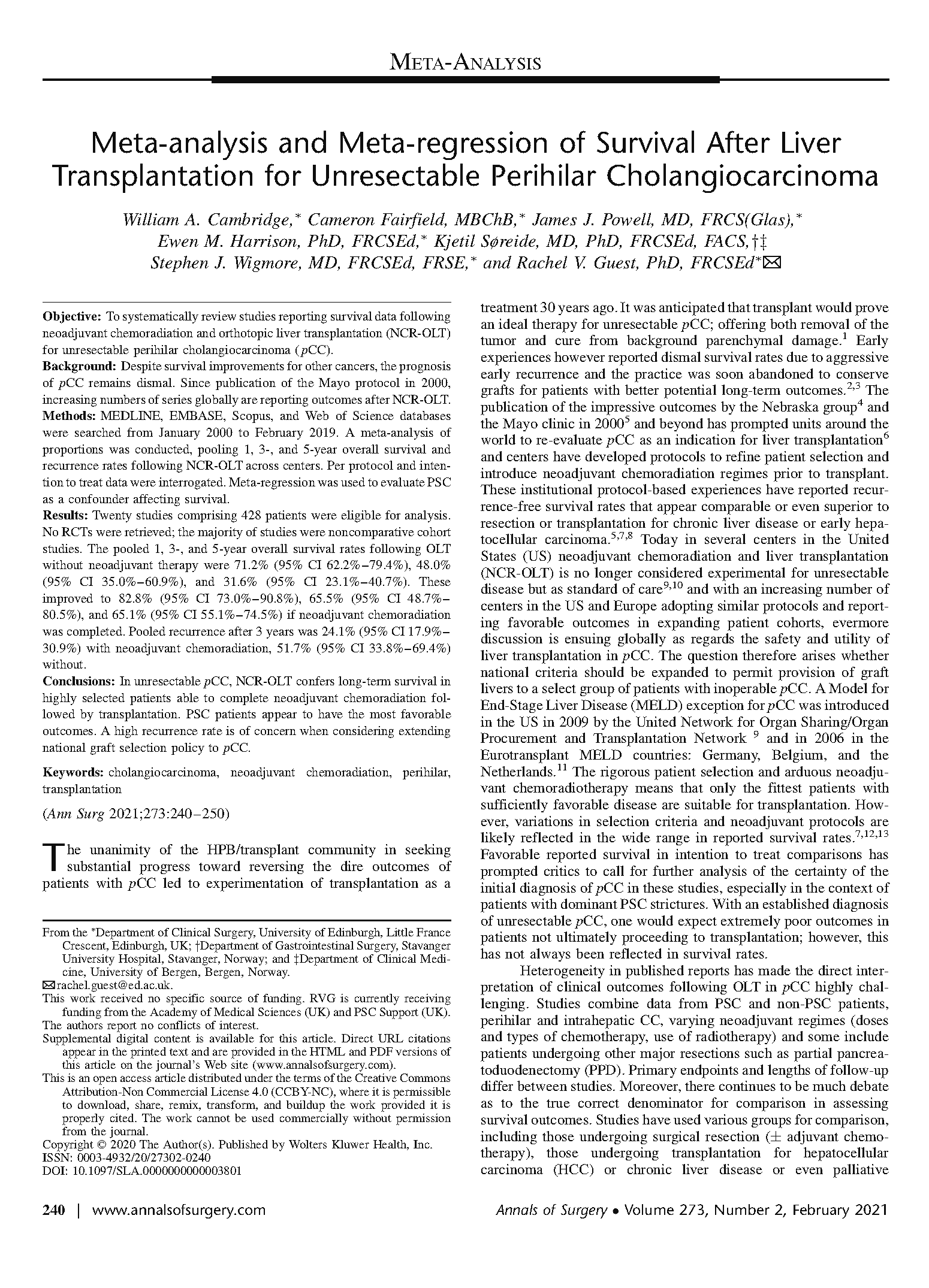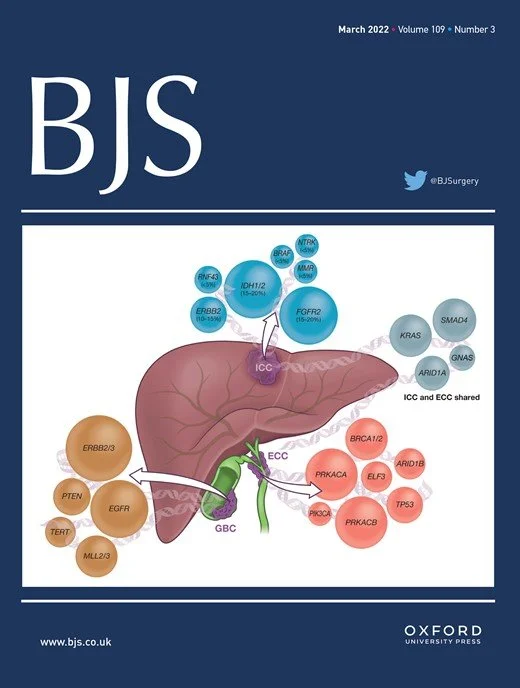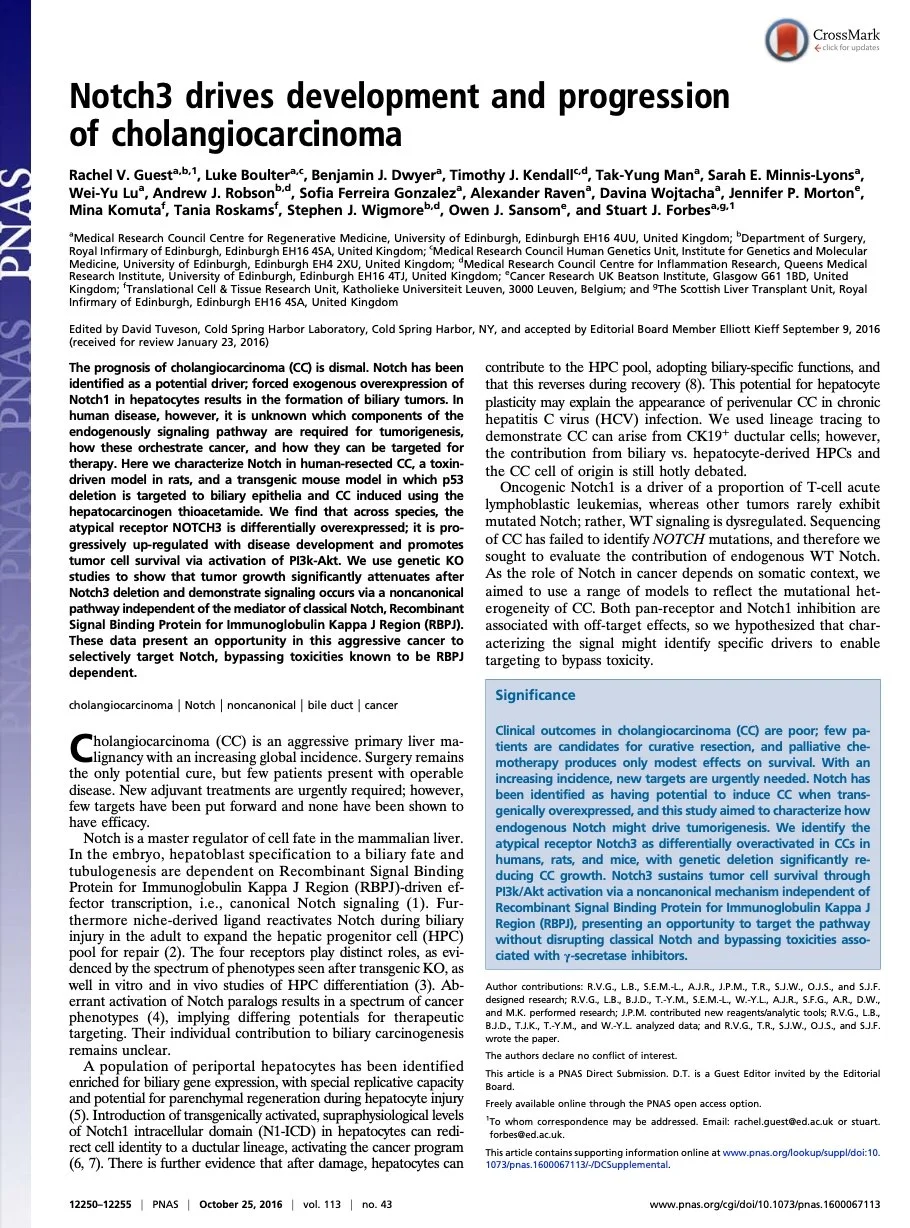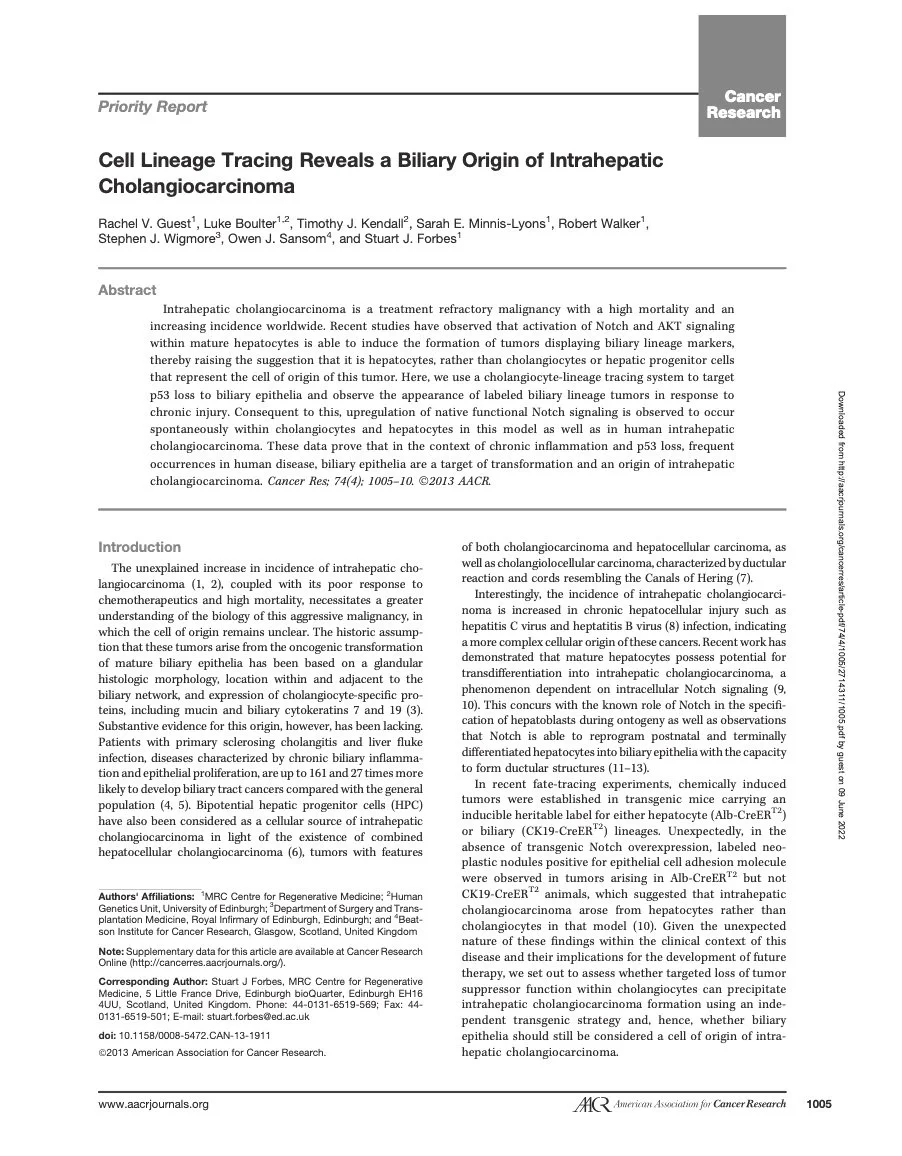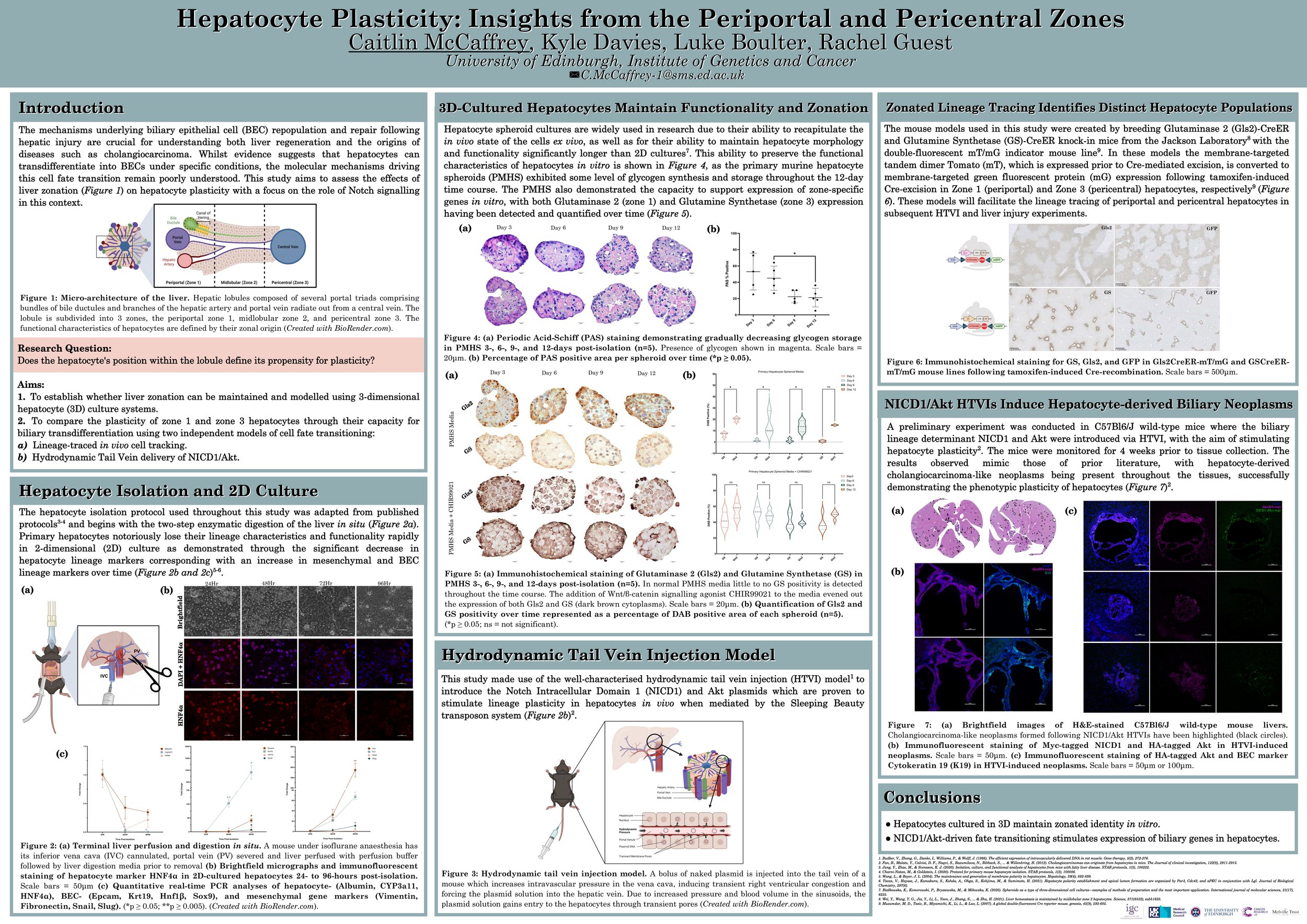
Publications
Collaborative review of the evidence for the ‘cell of origin’ of ICC, summarising the published genomic data, histopathological evidence and pre-clinical modelling experiments in this field.
Invited commentary on the role of targeted molecular therapies in ICC and how trial designs are evolving to maximise the data and lessons that can be learned in studies of novel treatments in less common cancer types.
Meta-Analysis of studies examining survival outcomes following liver transplantation for unresectable perihilar cholangiocarcinoma. We show that from the published data the best outcomes are seen in patients with Primary Sclerosing Cholangitis (PSC) and in patients who manage to complete neoadjuvant chemoradiotherapy prior to transplantation.
Notch signalling is one of the archetypal cues to specify the developing mammalian liver in the embryo. In this paper we identify the atypical Notch receptor, NOTCH3 as over-expressed in human ICC and demonstrate a sequential up-regulation of all Notch pathway components initially during liver injury and ultimately cancer. We show that genetic deletion of Notch3 leads to abrogated tumour development. We demonstrate that signalling through the Notch3 receptor to support ICC growth does not occur via RBJk, the classical node in the Notch pathway, but rather acts to activate PI3K/Akt signalling through a non-canonical mechanism.
In this publication, we use genetic lineage tracing of Krt19+ biliary cells to demonstrate that ICC can arise from the biliary/progenitor population in the liver. We combined genetic deletion of the tumour suppressor Tp53 with liver damage to generate tumours which could be seen to express a yellow fluorescent protein reporter tag.

